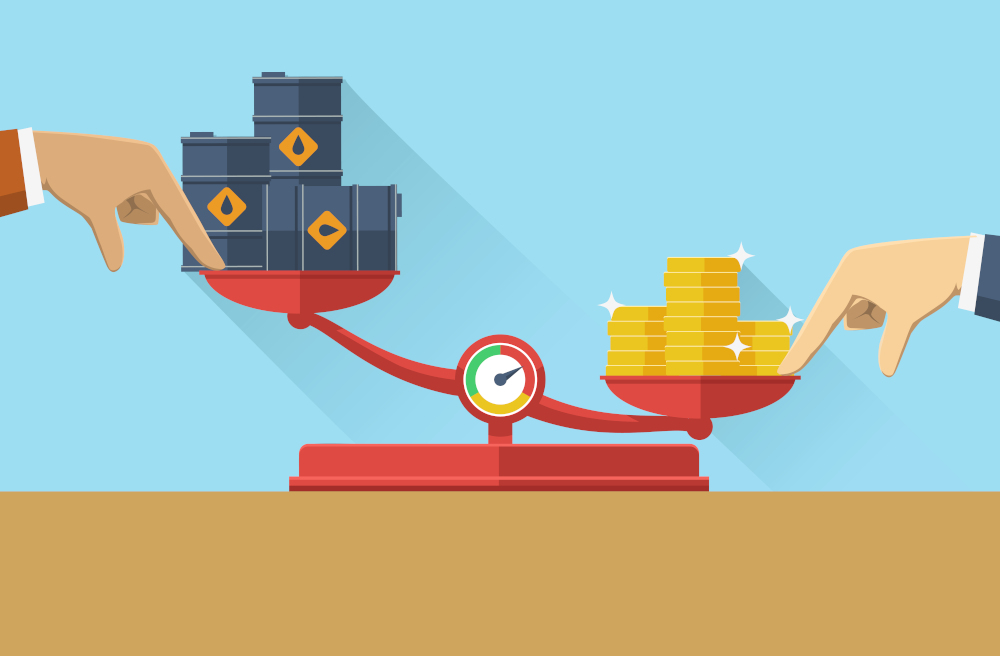Want to Invest in Commodities? Here’s What You Should Know
Inside Investing | Apr 15, 2019 16:50

If you’re reading this post, it probably means you’re interested in, or at least curious about trading commodities, but you may not be sure how and where to start, or if it’s even the type of investment you want to make.
What are Commodities?
To decide if you should trade commodities, you should probably know what they are (if you don’t already know): A commodity is a raw material or agricultural product you can buy and sell, and any physical or virtual market that allows you to do that is considered a commodities market. There are three categories of commodities - Soft, Hard, and Energy.
- Soft commodities are grown, such as coffee beans, lumber, meats, sugar, and so on.
- Hard commodities are raw materials that are extracted through mining, such as gold, silver, palladium, etc.
- Energy commodities refer to materials used to produce energy, such as oil, natural gas, ethanol, coal, and the likes.
In total, there are 100 primary commodities, half of which are considered major commodities.
How are commodities bought and sold?
While you can purchase the actual commodities and keep them, most of the commodities trade is done through commodities exchanges and futures contracts. Historically, the earliest known commodities market was in ancient Sumer, sometime between 4500-4000BCE. The contracts were written on clay tablets and represented the amount of each commodity (such as goats or quantity of wheat) that is promised to be delivered - not unlike futures contracts of today.
Commodity Trading - Pros
- Diversification - When you look at historical data, you’ll find that there is low to negative correlation between commodities prices versus stock and bonds prices. This allows you to hedge against your stock investments.
- Inflation Protection - While inflation drags bonds and stock prices down, commodities seem to benefit from it. This makes sense because inflation causes the prices of goods to rise, and the prices of commodities used to create these goods rise alongside them.
- Exposure to Growth Opportunities - As demand for certain commodities rises over time, its price rises concurrently. For example, in the last 2 years, the price of Palladium Futures more than doubled, as it is vital in the production of certain car parts.
Commodity Trading - Cons
- High Volatility - Commodities are considered to be some of the most volatile instruments to trade and are, on average, twice as volatile as stocks, and four times more volatile than bonds.
Important note - some analysts insist that another con is that commodities have no income generation, but as our analyst, Barani Krishnan states:
Non-income generation is something I'd argue against. The popular theory of commodities investing being a zero-sum game (i.e. someone has to lose for another to win), is too simplistic when viewed from a more diverse perspective. For instance, you can be a hedge fund that invests in niche plantations, participating not just in price discovery of the commodity you are growing but also earning income from the products you harvest and sell. The now-defunct Armajaro was one such hedge fund, is one of the largest proprietary investors/fund managers in cocoa/coffee during its time.
Got any other pros or cons? Let us know in the comments.
Latest comments


Great you shared this article. I was actually planning to invest in commodity stocks especially gold stocks along with investment in penny stocks asx. Thanks for sharing but it would be great if this could be more elaborative. ... (Read More)
Jun 26, 2019 10:50 GMT· Reply
Trading in financial instruments and/or cryptocurrencies involves high risks including the risk of losing some, or all, of your investment amount, and may not be suitable for all investors. Prices of cryptocurrencies are extremely volatile and may be affected by external factors such as financial, regulatory or political events. Trading on margin increases the financial risks.
Before deciding to trade in financial instrument or cryptocurrencies you should be fully informed of the risks and costs associated with trading the financial markets, carefully consider your investment objectives, level of experience, and risk appetite, and seek professional advice where needed.
Fusion Media would like to remind you that the data contained in this website is not necessarily real-time nor accurate. The data and prices on the website are not necessarily provided by any market or exchange, but may be provided by market makers, and so prices may not be accurate and may differ from the actual price at any given market, meaning prices are indicative and not appropriate for trading purposes. Fusion Media and any provider of the data contained in this website will not accept liability for any loss or damage as a result of your trading, or your reliance on the information contained within this website.
It is prohibited to use, store, reproduce, display, modify, transmit or distribute the data contained in this website without the explicit prior written permission of Fusion Media and/or the data provider. All intellectual property rights are reserved by the providers and/or the exchange providing the data contained in this website.
Fusion Media may be compensated by the advertisers that appear on the website, based on your interaction with the advertisements or advertisers.